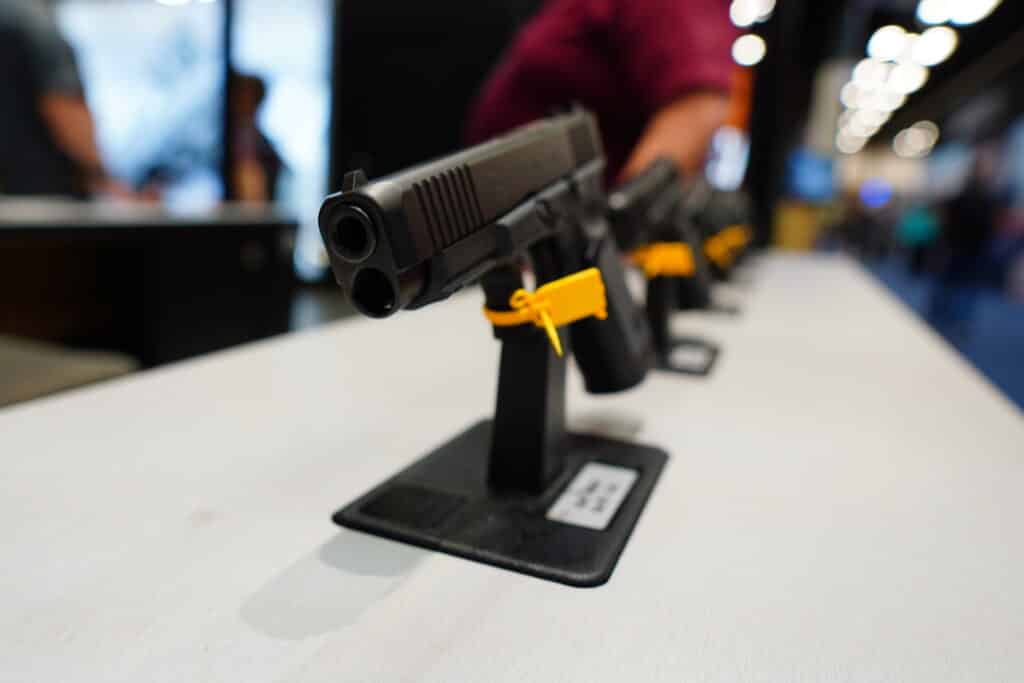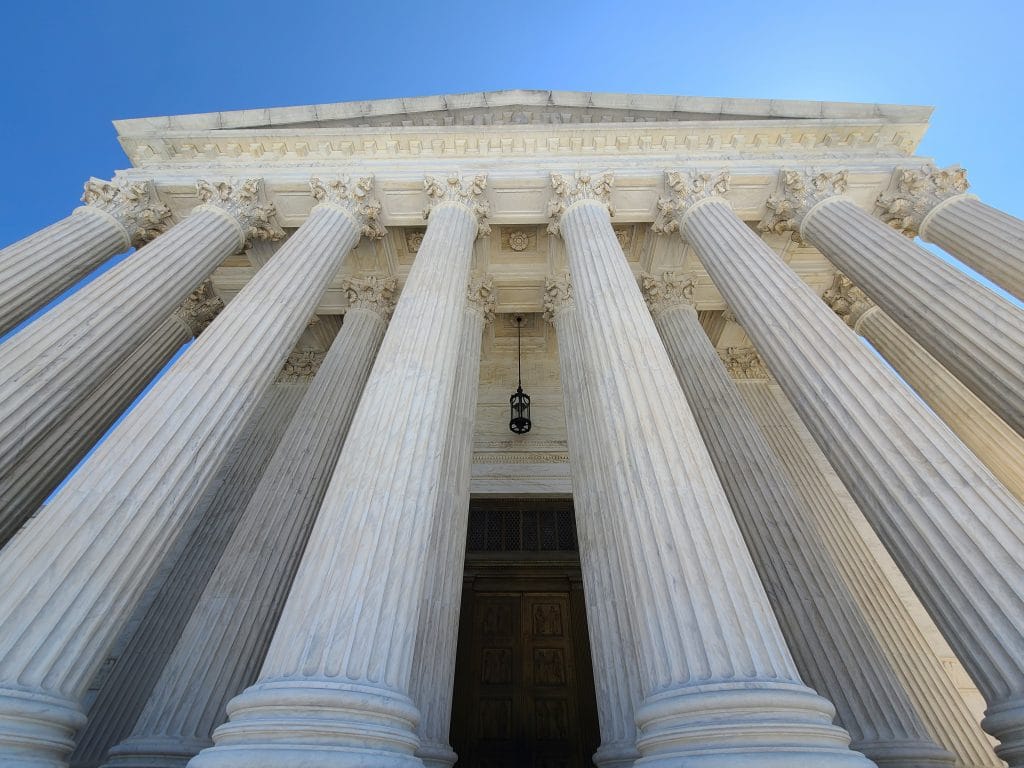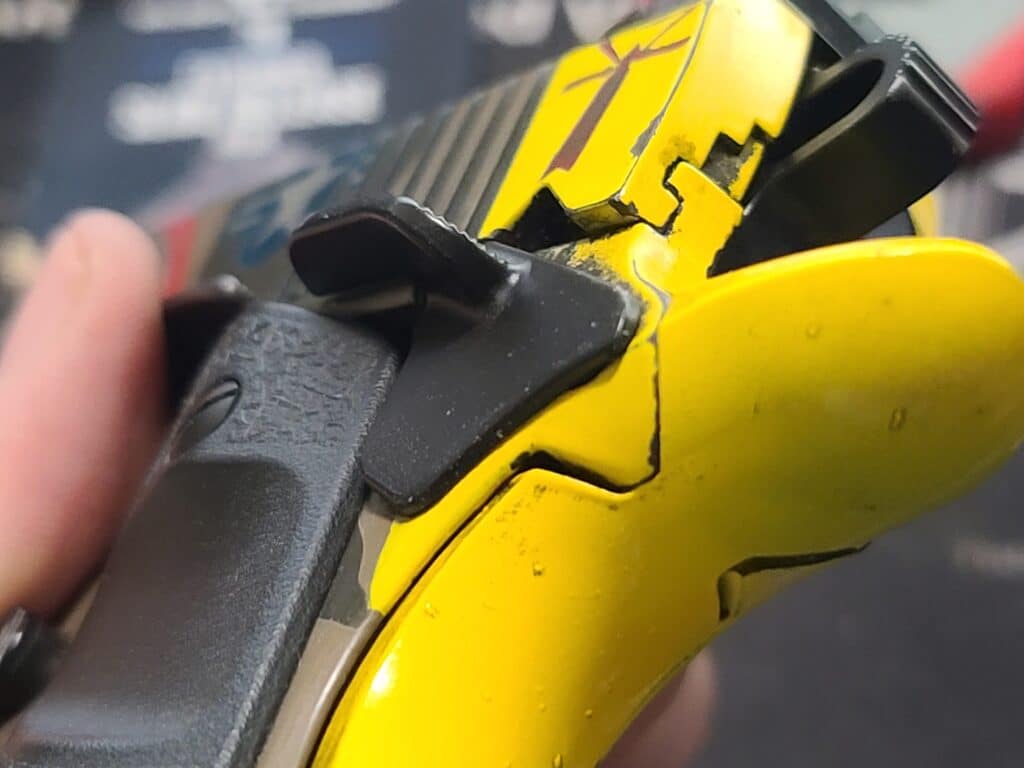The Tennessee legislature is about to go into a special session to respond to March’s Covenant School shooting. Republican Governor Bill Lee had initially suggested reconvening to consider a new variation on the “red flag” law but has since retreated on that point, at least somewhat.
Contributing Writer Jake Fogleman looks at where things stand now, why the red flag proposal isn’t necessarily gone, and what the outcome of the session could mean for the national gun debate.
Meanwhile, I try to make heads or tails of the Supreme Court’s decision to intervene in the “ghost gun” case. They handled this one differently from two gun cases earlier this year. But there are some explanations for why that might be.
Plus, gun-rights lawyer Alan Beck joins the podcast to talk about his recent wins over Hawaii’s gun laws. And I work on one of my favorite firearms.

Analysis: What the Tennessee Special Session Says About the Politics of ‘Red Flag’ Laws [Member Exclusive]
By Jake Fogleman
We’re now less than two weeks from the much-ballyhooed Tennessee special legislative session, where gun policy and public safety legislation are expected to take center stage. The session’s outcome may be telling about the state of modern gun politics.
All eyes will first and foremost be looking toward what becomes of Governor Bill Lee’s (R.) proposal for a red flag-style law in the Volunteer State. While not the exclusive focus of the session, his temporary “mental health order of protection” policy has captured most of the public attention in the lead-up to the session since Lee first unveiled it in April.
Careful to distance himself from the “red flag” label considered politically toxic in ruby-red states, Lee’s proposal would essentially accomplish the same goals but with several due process protections not found in red flag statutes on the books elsewhere. Thus, it is clearly aimed at making a policy of removing someone’s firearms without a criminal conviction more politically palatable to his fellow Republican elected officials and their constituents. So far, however, it does not appear to have worked to head off intraparty backlash.
Last Saturday, the Tennessee Republican State Executive Committee adopted a resolution asking Lee to cancel the special session altogether.
“I think Tennesseans not only are proud of but understand the Second Amendment. They are proud and agree with the Constitution of the United States,” Committee member Tina Benkiser said of the resolution, according to the Chattanooga Times Free Press. “My concern, and a lot of others’ concerns, is that some of the proposals we’ve heard really violate due process of law.”
Days later, when Governor Lee formally issued a proclamation for his August 21 “public safety special session” over the objections of the executive committee, he drew the ire of gun-rights advocates in the state.
“Governor Lee appears intent on ramming through an administrative gun control package in just a few days that will effectively preclude the public (or most legislators) from having the opportunity to consider, comment on or even take an organized position on this gun control package,” the Tennessee Firearms Association said in a post responding to his proclamation.
The group has been keeping a running tally of lawmakers who have publicly taken a position on Lee’s proposal. To date, the group counts seven elected officials, including three Republicans, who have publicly announced their support for the proposal. Another ten lawmakers, mainly Republicans, have said they will decide one way or another during the session. But 28 Republican lawmakers, including the leadership of both chambers, oppose Lee’s policy.
Gun-control advocates and elected Democrats in the state have been working to counteract conservative opposition to the proposal by ginning up public pressure. A group of Democratic lawmakers announced a statewide bus tour beginning this week designed to promote Lee’s extreme risk proposal and other gun-control policies until the special session kicks off.
Meanwhile, the group Everytown for Gun Safety recently launched a $100,000 digital ad campaign focused solely on encouraging the public to contact legislators and push for their support of Lee’s proposal. A public comment forum, opened for the state’s residents to provide feedback to lawmakers ahead of the special session, has already received more than 20,000 responses, according to the Governor. A majority have called for stricter gun laws, according to a WUOT News analysis.
Despite these attempts by gun-control advocates to rally around Lee’s proposal, it appears the intra-coalitional pressure from the gun-rights community and members of his party has affected the Governor. In the proclamation order setting the parameters of the special session, Lee included “temporary mental health orders of protection” as a policy to be considered by lawmakers. But the policy was notably omitted from the Governor’s administrative bill package. That means that while the proposal will still be on the table for passage, indicating that the Governor still supports the idea, Lee himself will no longer be fighting to get it across the finish line.
Instead, Lee’s administrative package will focus on codifying his executive order issued shortly after the Covington School shooting designed to boost gun background checks by improving record sharing with the Tennessee Bureau of Investigation. It will also focus on a series of mental health reforms and promoting safe firearms storage by reducing taxes on gun safes, providing free trigger locks, and launching a public awareness campaign around safe storage practices.
That’s quite a departure for Lee from the confident stance he took in support of the policy in April when he publicly called upon state lawmakers to eschew “politics” and “division” to get the order of protection bill passed.
“We’ve done this before – the Governor’s office working together with the legislature to rise above politics and lead through division… to search our hearts and do that which I believe Tennesseans have elected us to do,” he said at the time. “Tennesseans are depending on us.”
The subsequent back-peddling, limited as it may be, suggests that Lee’s efforts to bolster an extreme risk law with numerous due process protections were insufficient to change the red-flag law debate politically, at least in a Republican state.
At the same time, his willingness to allow the policy to remain on the table for other legislators to push suggests that, at least at some level, Lee is under pressure to appear proactive on the issue. As the Governor, he had plenary authority to set the parameters for what could be considered during the special session, including the option to entirely exclude consideration of a red-flag-style law if he so chose.
His choice of keeping it on the table—effectively forcing lawmakers to act on it one way or another—while stepping back from shepherding it through personally suggests a political calculation borne of strong cross-pressures from both gun-rights and gun-control supporters.
While the gun rights side will likely win the day legislatively due to supermajority Republican control of the state assembly, whether or not those same elected Republicans are rewarded or punished at the ballot box for their stances next election will ultimately tell the tale.
Podcast: An Interview With the Lawyer Dismantling Hawaii’s Strict Gun Laws [Member Early Access]
By Stephen Gutowski
This week, we’re talking with one of the most prolific independent gun litigators in the country.
Alan Beck set about successfully undoing the country’s stun gun bans in the wake of the Supreme Court’s 2016 Caetano ruling. He also challenged Hawaii’s effective ban on gun carry in Young. Now, he’s back taking on the Aloha State’s strict gun laws in the wake of 2022’s Bruen.
And he’s winning.
This week alone he notched victories in two different cases against Hawaii. First, a Ninth Circuit Court of Appeals panel ruled the state’s total ban on butterfly knives violates the Second Amendment. Then a federal judge appointed by Barack Obama found Hawaii’s post-Bruen “sensitive places” gun-carry restrictions, including in restaurants, also run afoul of the Second Amendment.
Beck explains the ins and outs of those rulings as well as their significant implications for future cases in Hawaii and beyond. Then he describes a new suit he just filed against a Hawaii county trying to force concealed-carry permit applicants to waive nearly all of their privacy rights, including what they’ve told their lawyers or even priests.
Plus, Contributing Writer Jake Fogleman and I discuss the Supreme Court’s intervention into the “ghost gun” case.
You can listen to the show on your favorite podcasting app or by clicking here. Video of the show is available on our YouTube channel. Reload Members get access on Sunday, as always. Everyone else can listen on Monday.
Working on One of My Favorite Guns
My 1911 is a prized possession. Mechanically, it’s nothing terribly special. Just a Remington R1 Enhanced I bought sometime in the mid-2010s. (I do want to get a matching Remington model from a century earlier at some point).
Cosmetically, my 1911 is quite unique. I had it Cerakoted for a story when I worked at the Washington Free Beacon. It’s got a distressed design based on a p-51 Mustang, which I think turned out absolutely fantastic.
However, it doesn’t work exactly the way I’d like. The slide catch doesn’t catch the slide on the last round anymore. And the thumb safety’s rear edge protrudes from the frame just enough to dig into the webbing on my strong hand when I shoot.
That’s a shame since the short-travel single-action trigger on this 1911 makes it an absolute joy to shoot. If I can get these relatively-small problems sorted, I can make my favorite gun that much better. So, I set about replacing the slide catch and shaving down the rear edge of the thumb safety with my Dremel.
The procedure wasn’t too bad. The slide catch was plug-and-play. I didn’t touch any of the sears or internal parts of the safety. There was a flying detent, as there always is.
But the process worked pretty well. It already feels much better in my hand.
I’ll take it to the range sometime this week and give it a workout. I’ll update you all on how it goes on next week’s podcast. Wish me luck!

Analysis: What Does the Supreme Court ‘Ghost Gun’ Action Tell Us? [Member Exclusive]
By Stephen Gutowski
The Supreme Court decided to intervene in a case that implicates gun policy. But what that decision says about where the Court is headed on the Second Amendment isn’t completely clear.
The justices gave us very little to go off of when interpreting their move in Vanderstock v. Garland. They didn’t explain why they decided to issue a stay on the ruling against the ATF’s attempt to reclassify unfinished gun parts as functioning firearms after the Fifth Circuit declined to do the same. They didn’t speak on the merits at all.
But that doesn’t mean there aren’t some tea leaves to read. The first of which is what little the Court did say.
“Application (23A82) for stay presented to Justice Alito and by him referred to the Court is granted,” the Court wrote in its order. “The June 30, 2023 order and July 5, 2023 judgment of the United States District Court for the Northern District of Texas, case No. 4:22-cv-691, insofar as they vacate the final rule of the Bureau of Alcohol, Tobacco, Firearms and Explosives, 87 Fed. Reg. 24652 (April 26, 2022), are stayed pending the disposition of the appeal in the United States Court of Appeals for the Fifth Circuit and disposition of a petition for a writ of certiorari, if such a writ is timely sought.”
So, the Supreme Court stayed the lower court’s decision to vacate the ATF’s rule. That effectively means the agency can continue to enforce its ban on selling unfinished frames and receivers, especially in kits alongside jigs designed to help build them into working guns. Moreover, the Court has determined that the ATF’s rule will remain in effect even after the Fifth Circuit panel set to hear the case has handed down its ruling.
The stay will only expire once the Supreme Court itself has considered any potential appeal request.
This is a departure from the two recent gun cases where one of the parties sought an emergency intervention. The Court rebuffed plaintiffs in NAGR v. Naperville, who asked SCOTUS to issue an emergency injunction against Illinois’ “assault weapons” ban after a district judge refused.
They did the same in Antonyuk v. Nigrelli when plaintiffs asked the Court to remove a Second Circuit stay on a lower court ruling tossing New York’s expansive “sensitive places” gun-carry restriction law. Although, Justices Samuel Alito and Clarence Thomas did indicate that was merely out of respect for the Second Circuit’s procedure.
“I understand the Court’s denial today to reflect respect for the Second Circuit’s procedures in managing its own docket, rather than expressing any view on the merits of the case,” Alito wrote.
In fact, they took time to complement the ruling against the state’s law.
“The New York law at issue in this application presents novel and serious questions under both the First and the Second Amendments,” Alito wrote. “The District Court found, in a thorough opinion, that the applicants were likely to succeed on a number of their claims, and it issued a preliminary injunction as to twelve provisions of the challenged law.”
Another departure from those cases comes with the makeup of the decision to stay the ATF’s “ghost gun” rule. Unlike those unanimous orders, this one split the conservative side of the bench. Most of the conservatives wanted to deny the stay.
“Justice Thomas, Justice Alito, Justice Gorsuch, and Justice Kavanaugh would deny the application for stay,” the Court’s order said.
But, unlike Antonyuk v. Nigrelli and NAGR v. Naperville, this isn’t a Second Amendment case. It’s a case that centers around the limits of executive agency power.
Also, the government is the one who made the emergency request in this case. And that request was for a stay instead of an injunction. Both of those points are highly relevant because, as skeptical as it may be of government power, the Supreme Court very often defers to the government in how it adjudicates cases.
If the Department of Justice is asking for the Supreme Court to take some kind of action in a case that directly impacts the enforcement of federal law, it’s very likely the Court will agree to do so. The Court obviously doesn’t always issue the ruling the government wants, but its docket is often stacked with cases where review was requested by the government.
That’s one of the reasons the Court took so long to take a Second Amendment case after 2008’s Heller and 2010’s McDonald but only a year between 2022’s Bruen and 2023’s Rahimi. The big difference between Rahimi and the slate of Second Amendment cases the Court rejected in 2019, for instance, is that the government was asking for review this time.
From that perspective, it’s a bit more surprising the Fifth Circuit declined to extend a stay to the ruling blocking the ATF’s rule than it is to see the Supreme Court issue one. The Fifth Circuit explained its reasoning for denying the stay this way:
“Because the ATF has not demonstrated a strong likelihood of success on the merits, nor irreparable harm in the absence of a stay, we DENY the government’s request to stay the vacatur of the two challenged portions of the Rule,” the panel wrote in a per curiam opinion. “This effectively maintains, pending appeal, the status quo that existed for 54 years from 1968 to 2022.”
That the Supreme Court apparently disagreed with this reasoning says something. But it’s entirely possible all it says is the Court is more skeptical about vacating the rule before the legal fight over it has ended. After all, if the six justices who agreed to extend the stay had all agreed with the DOJ on the case’s merits, they could have said so in the order.
Instead, we’re left to read the entrails of a single paragraph and make our best guess.
Weighing these factors together shouldn’t make either side of the gun debate think they know where the Court is headed on the merits of the ATF’s “ghost gun” ban. Although this wasn’t what gun-rights advocates wanted to see at this stage of the case, that doesn’t necessarily mean it says much about where the Court might come down on the merits of the rule. Or that they’ll take it up at all.
That’s it for now.
I’ll talk to you all again soon.
Thanks,
Stephen Gutowski
Founder
The Reload











